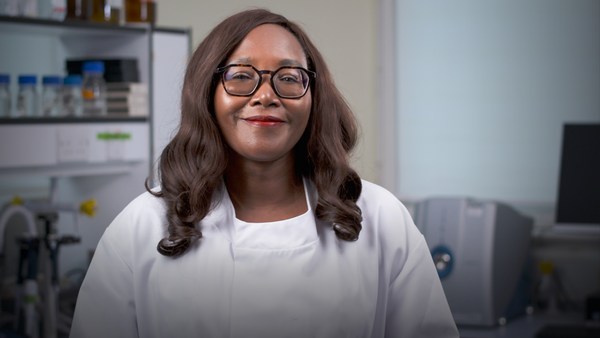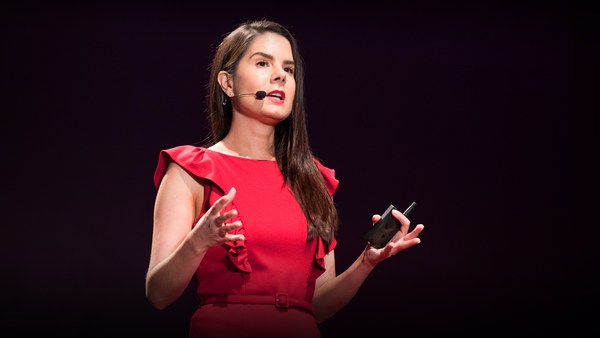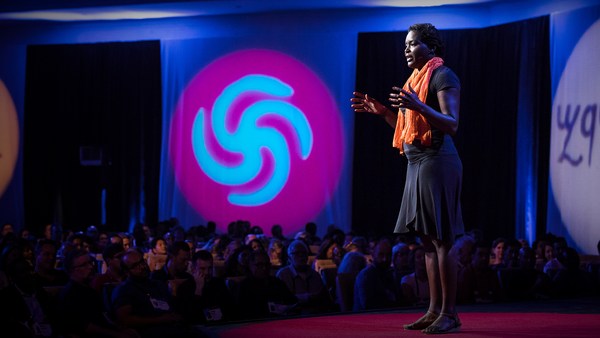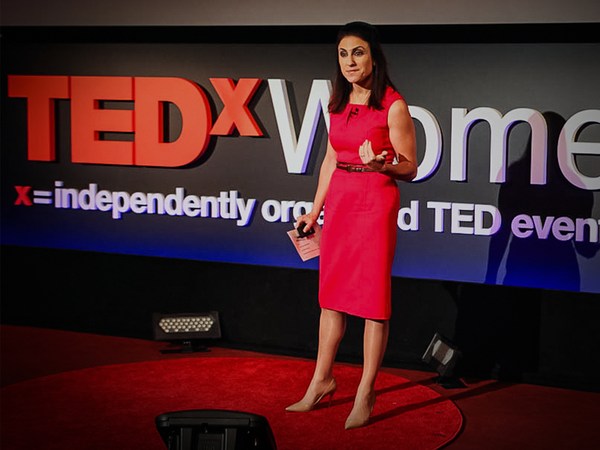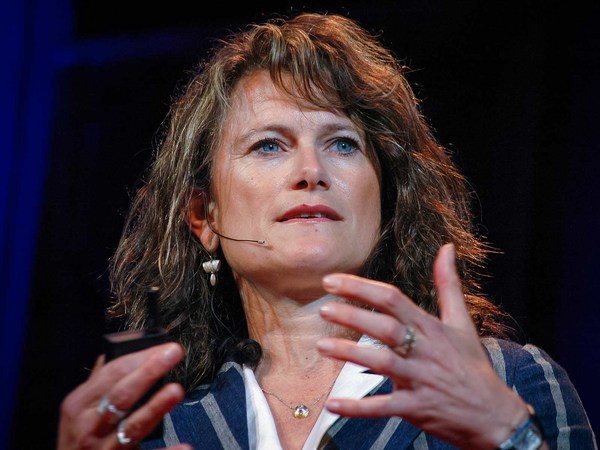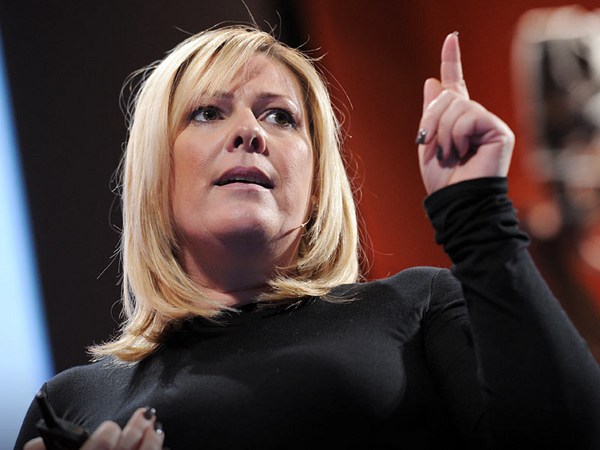If I asked you to guess which country in the world has the highest number of female entrepreneurs, which country would you guess? Don't worry. I'll tell you.
(Laughter)
Uganda, yup, in Africa. 39.6 of all Ugandans who start, own and operate their own businesses are women. Ugandan women are clearly formidable, but they are not alone. The second and third country on that list of world female entrepreneurs, according to MasterCard, were Botswana and Ghana. Yup, Africa.
(Applause)
So what's keeping these amazing businesses from dominating global stock exchange? Why are you not seeing people like me, yours truly, listing our companies every day, dominating Nasdaq and London Stock Exchange? Let me tell you what I think.
I love the hero's journey. I can often be found on Reddit late into the night, after I've put the children to bed, arguing about many fantastical worlds. And I'm always secretly delighted that the people on the other side of the screen could never guess that the fierce figure arguing about Middle Earth canon and the ways of the Basilisk Isles in Sothoryos is an African mom of two who runs a startup out of Lagos, Nigeria.
I was born in a small town in Nigeria. In 2001, my parents moved to the United States, where I grew up, got educated, got married and decided to start a family. It was the difficult birth of my son that started me on my own hero's journey. You see, while I was on bed rest, I found out that 556 women bleed to death every single day across sub-Saharan Africa. And to my astonishment, if you could just move blood to these hospitals, you could save four out of five women. I decided as a woman who had sat on that hospital bed seven years ago, wondering whether she was going to survive childbirth, that I had a duty to do something about this. I moved back home to Nigeria and started my own company.
You see, Africa has the resources. We have the blood, the oxygen, the PPE that we need to save lives. But we don't always have it at the right place, at the right time. So that's what we decided to solve. We built technology with over 200,000 lines of code that matches supply to demand, and we closed the loop by delivering it to the last mile. In 2016, when this company started, we had one single desk at a coworking space. And now, as I speak, we operate across Kenya, Nigeria and Ethiopia. We can deliver as far as Maiduguri, Borno State, home to the Chibok girls.
But no part of this journey was easy. In fact, it almost did not start. Because while I recognized the size of the problem, I knew people like me did not start big businesses. There was no playbook. There was no model for me to follow. And I knew that to solve this problem, we would need access to a significant amount of resources, from venture capital, from philanthropy and other critical points of growth. But there was no model because people like me had not received the critical resources they needed to grow and scale their own enterprise. So does this mean women cannot be heroes? Does it mean that we cannot be heroes of our own journey? No, in fact, women like me routinely start their own companies. In Nigeria, we have [Abimbola Adebakin] who is building the supply chain to get medicine to the last mile. We have Bilikiss Abiola, who is protecting the natural world by turning trash to cash. And in Peru, Sully Siucho Diaz is building wealth for families by helping them make better mortgage decisions. Yet we're not seen as founders that can scale and build large businesses.
A few years ago, we needed resources at LifeBank, and I went to pitch LifeBank to an investor. I was very excited, and I told him about all the amazing things we would do. And he said to me, "I just can't see you building something that scales." To my face.
(Laughter)
Like any normal person, I was taken aback by his lack of faith, but I didn't let that stop me. I felt like I was duty bound to build the change, the innovation that I wanted to see in the world. And although he was right, I don’t look like the classic hero. But, like Frodo, the journey chose me.
(Laughter)
(Applause)
So I didn't let that stop me. I went out there and built a great business. And here are a few points. Since inception, we've doubled revenue year on year.
(Applause)
We’ve built technology that can predict oxygen demand, and we use blockchain to track our blood system. These innovations are novel even by global standards. We have rescued over 40,000 people. Our journey is by no means complete. But watch us pull it off.
Truth is, heroes are often not guys in a cape. And my story suggests that we must look to the unexpected places when we are looking for entrepreneurs and leaders. Data suggests that if you hold any kind of bias against a group, you're most likely to discriminate against the people who most need to be heard. And it is these people who often have the solution to the world's most pressing challenges. It is critical that we do the work to listen to every voice and to break down the silos that keep most of us back and keep us from starting. It is time to close the funding gap between female-led startup, Black female-led startup world over.
(Applause)
Because while you may not see us, we are here, and there are millions of us. So if you are an investor, I want to invite you to join your peers, and when you are looking for founders to back, look to the unexpected. And if you are in this room, and you think you may want to go on your own hero's quest, I'm here to tell you to do it. And if they don't believe you, show them! The world needs the most unique voice.
Thank you.
(Applause)
